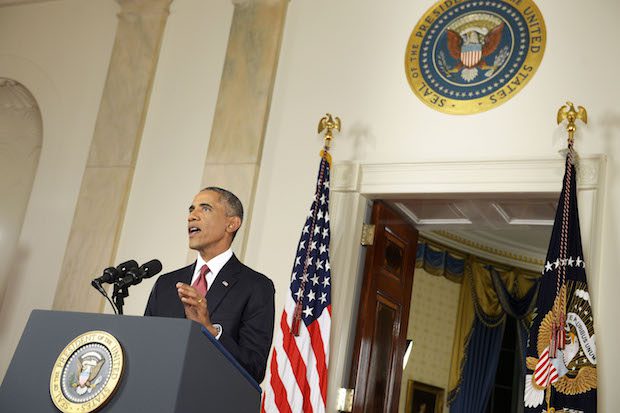The “Broad Coalition” and the War on ISIS

The New York Times reports on the “broad coalition” in the war on ISIS that mostly includes token members:
The president has sought to evoke the sort of grand coalition the United States led in World War II. But when it comes to the war part of the war against the Islamic State, the 65-member coalition begins to shrink rapidly down to a coalition of just a handful.
The administration’s desire to cast the war as having the support of dozens of nations is understandable, but after a while it becomes difficult to take seriously. Obama would prefer it if the public didn’t realize that the air war is being waged mostly by the U.S. and that contributions to the war from allies and clients are limited or non-existent. As long as the war can be spun as something that the U.S. is doing in concert with lots of other nations, it seems less like an example of being expected to take care of other nations’ security problems at our expense. It makes the campaign seem like something that has broad international backing when the real support for it in Iraq and Syria is shallow in the extreme.
The more that the war on ISIS appears to be primarily U.S.-run and U.S.-fought, the more that it begins to resemble the last big unnecessary war that the U.S. fought in Iraq. The conspicuous lack of tangible support from regional states (many of which are too busy smashing Yemen to be bothered with ISIS) makes it hard to miss that the U.S. is assuming responsibility for regional security problems while most of the governments in that part of the world do little or nothing. The Obama administration also likes to pride itself on its multilateralism, and so they boast about anything that bolsters its reputation for securing international cooperation even when the commitments made by most other states are minimal. The official line about a “65-member coalition” obscures all of this, and that is why there has been such an emphasis on it.
Comments